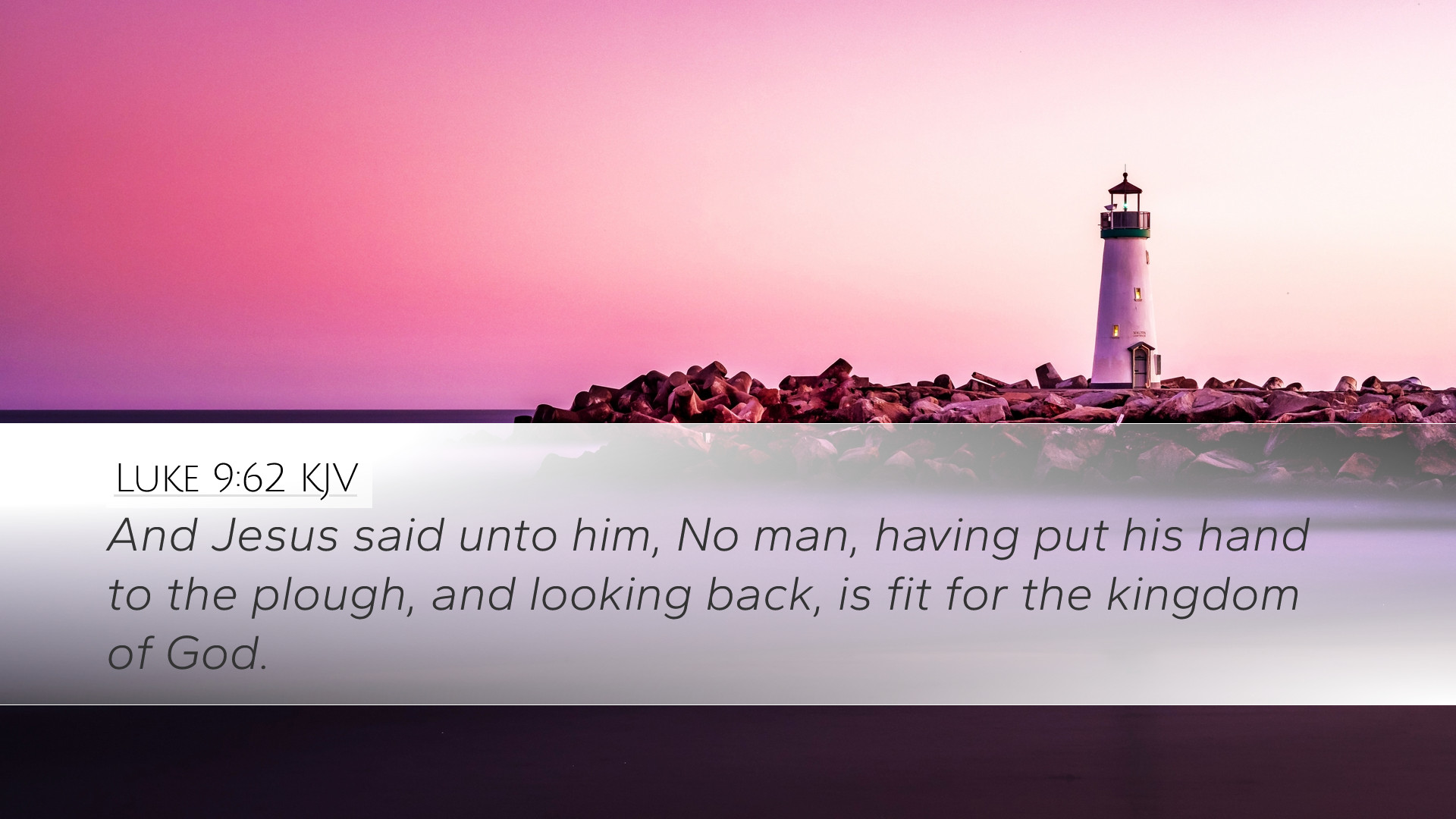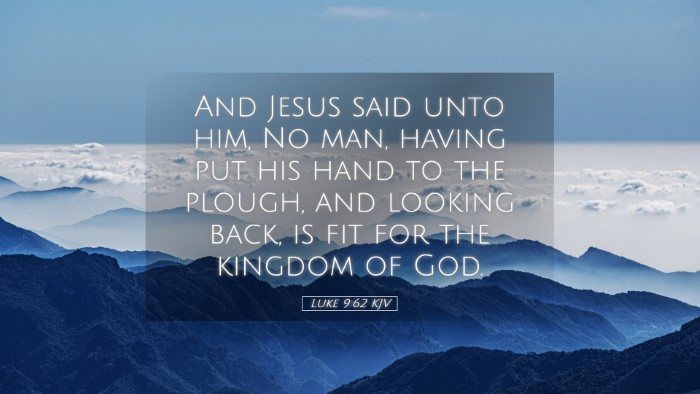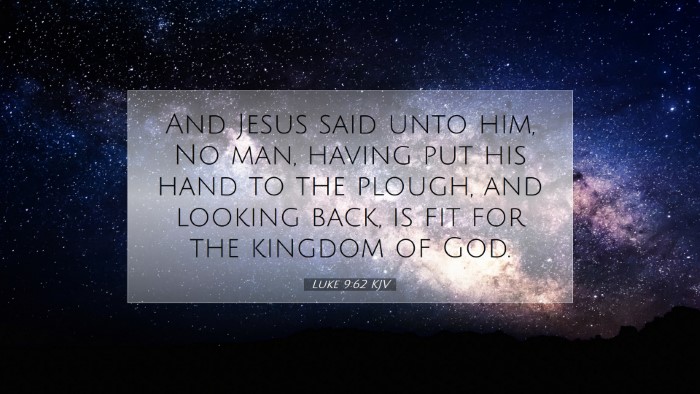Commentary on Luke 9:62
“But Jesus said unto him, No man, having put his hand to the plough, and looking back, is fit for the kingdom of God.”
Introduction
This verse encapsulates a significant teaching of Jesus regarding the nature of discipleship. It comes at a crucial point in the Gospel of Luke, where Jesus has set his face toward Jerusalem, emphasizing the cost and commitment involved in following Him. The metaphor of plowing serves as an illustration of dedication, focus, and the necessity of perseverance in the Christian journey.
The Metaphor of the Plough
1. The Call to Commitment
In this metaphor, Jesus likens the act of discipleship to a farmer's task of ploughing, which requires full concentration. Matthew Henry notes that "the ploughman must not only begin his work but must apply himself to it with diligence and perseverance." This underscores the commitment expected of those who choose to follow Christ. Just as a ploughman needs to have a steady eye on the furrow, believers must keep their focus on Christ and His mission.
2. The Dangers of Distraction
Albert Barnes emphasizes the danger of looking back, stating that “looking back in this sense imports either hesitation and timidity in a work or a desire to return.” In the agricultural context, if a farmer looks back, the plough will veer off course, leading to crooked rows. This suggests that a disciple who is distracted by past affections, fears, or regrets is not fit for the kingdom of God. Jesus is reminding followers that the path of discipleship requires undivided attention and a forward-looking perspective.
Theological Implications
1. The Nature of Discipleship
Adam Clarke expounds that "the person who is engaged in the service of God must be in earnest." Discipleship is not a casual endeavor; it demands earnestness and a complete commitment to Christ. Looking back symbolizes a disinterest or a lack of complete surrender, which Jesus deems unsuitable for His followers. The call to follow Christ thus entails a radical reorientation of life, where the past is eclipsed by a new allegiance to Jesus.
2. The Reality of the Kingdom of God
The phrase “fit for the kingdom of God” has significant implications. This qualification involves a readiness to embrace the values and mission of God's kingdom. According to Matthew Henry, it involves “the renunciation of all personal interests” for the sake of the greater good of the Gospel. It sets forth a high standard of dedication that is necessary for cultivating true discipleship.
Application for Today
1. Evaluating Our Commitment
For modern believers, this verse serves as a compelling call to evaluate our commitments. Are we fully engaged in our walk with Christ, or are we allowing distractions from the past to hinder our progress? This metaphor encourages self-reflection and honest assessment of our discipleship. As we plough the field of life, let us ensure we are looking ahead with focused intention.
2. The Expectation of Perseverance
Furthermore, the expectation of perseverance is critical in today’s spiritual climate. In a world rife with distractions, the call to “not look back” resonates profoundly. It implores believers to resist the temptation of nostalgia or regret that can pull them off course. Each of us is challenged to maintain our gaze forward, seeking the things of God’s kingdom rather than being entangled in worldly concerns.
Conclusion
In conclusion, Luke 9:62 powerfully encapsulates the high demand that Jesus places upon His disciples. By employing the imagery of plowing, He highlights the necessity for unwavering commitment, the perils of distraction, and the profound implications of truly being fit for the kingdom of God. As we reflect on this teaching, let it inspire us to deepen our resolute commitment, aligned with His mission, forward and upward to the fulfillment of His calling in our lives.


